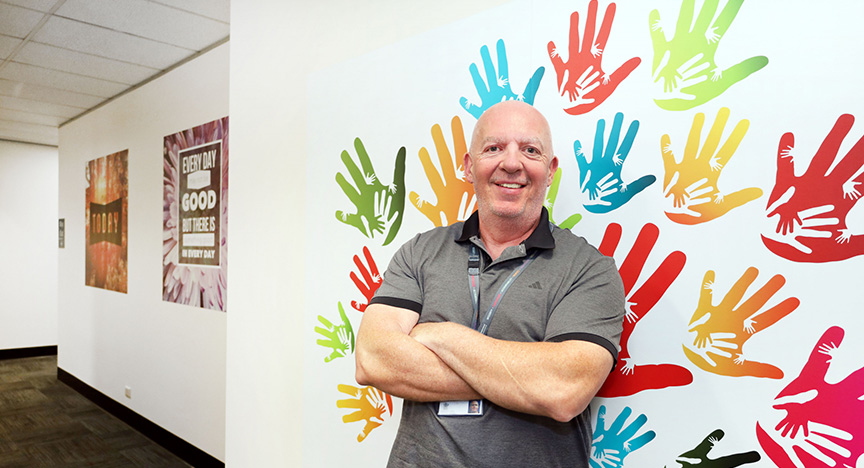
Outpatients who hear distressing voices are embracing a new lease on life thanks to the Woolloongabba Community Health Centre’s (WCHC) Hearing Voices Group (HVG).
Launched by PA Hospital Senior Social Worker Dr Gordon Kay Ph.D., the ten-week program welcomes five to ten participants to engage in a weekly session that employs a combination of proven peer support methods and Cognitive Behavioural Therapy for psychosis (CBTp) led by two facilitators.
The cognitive model of voice-hearing suggests that distress associated with voices is best understood in terms of beliefs about voices. Running for twelve years and counting, Gordon says the program’s gentle and supportive approach is key to its efficacy.
“Several factors may contribute to how people cope with hearing voices including their experience of different life events, the level and type of support they receive, individual personality traits and characteristics, and opportunities to make sense of what is happening to them,” said Gordon.
“Importantly, the HVG provides a sense of being normal in a safe and non-judgmental space where people can come together and explore different beliefs about voices, share coping strategies, and talk about stigmatising experiences.”
Once rapport has been established and participants are engaged in discussion, facilitators gently introduce CBTp strategies that support participants to start to break down established thought patterns or beliefs formed around the condition.
“The target of intervention in our therapy is focused on adverse beliefs about voices and the distress caused by those beliefs. People come in with a range of beliefs about where their voices may come from and the power they may have. Our job is to explore every explanation alongside the cognitive model of voices.”
With the focus on open discussion and self-compassion, participants start to explore new ways of thinking about and relating to their voices.
“We try to encourage people to engage with their voices rather than distract from them, and to be compassionate towards them, which is very difficult if the voices are horrible and demeaning.
“By being kind and compassionate to that voice, which might represent the most hurt parts of yourself, the dynamic changes and that can be quite life-changing for people.”
By the end of the program, Gordon says participants overwhelmingly report improvements in managing their condition, including a decrease in negative side effects and enhanced social connectedness.
“The goal isn’t to get rid of the voices. It’s about helping people explore and manage their experience, and to help them cope,” he said.
“Participants decide what their goals are. If we see a shift in belief, we see that as a positive. Some people are really isolated and never see other people, so if we can engage them in social connectedness, that’s a really positive outcome.”
While the program is not a cure-all solution, Gordon says the tangible benefits for participants cannot be understated.
“As therapists, seeing a shift in those beliefs and supporting people to live full lives after feeling isolated by their condition are really positive outcomes. We’ve heard many success stories over the years, and a number of our past participants have even gone on to become group facilitators or public figures.”
Balancing a full workload at the WCHC alongside keynote invitations, grants and research opportunities, Gordon’s niche expertise and wealth of knowledge have sealed his reputation in the field, and he looks forward to sharing that knowledge with more junior facilitators as the service grows.
“I’ve been really fortunate in the way this work has opened many doors for me, from being invited to speak and present at events around the world, to having my research published and securing funding for future research.
“The goal for us now is sustainability, and raising up more emerging leaders to grow the service.”